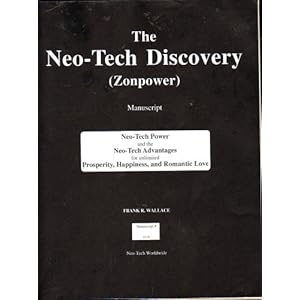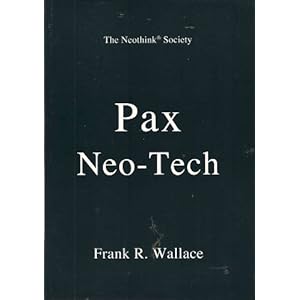The Magic of Consciousness - Daniel Dennett
Moderator: Community Team
17 posts
• Page 1 of 1
The Magic of Consciousness - Daniel Dennett
Great video, it's kinda long but very easy going. (ignore the cheesy intro)
Youtube video wa staken down. Here's another link:
http://videos.escapeartist.com/watch_video.php?v=3ADM67DKB8DX
Youtube video wa staken down. Here's another link:
http://videos.escapeartist.com/watch_video.php?v=3ADM67DKB8DX
Last edited by Haggis_McMutton on Wed Jul 25, 2012 12:26 pm, edited 1 time in total.
Highest score: 3063; Highest position: 67;
Winner of {World War II tournament, -team 2010 Skilled Diversity, [FuN||Chewy]-[XII] USA};
8-3-7
Winner of {World War II tournament, -team 2010 Skilled Diversity, [FuN||Chewy]-[XII] USA};
8-3-7
-

 Haggis_McMutton
Haggis_McMutton
- Posts: 403
- Joined: Sun Mar 26, 2006 11:32 am













Re: The Magic of Consciousness - Daniel Dennett
I'm reading Conciousness Explained at the moment. I'll give this a watch when I get some time.
2009-08-12 03:35:31 - Squirrels Hat: MWAHAHAHAHAHAHA!!!!!!!!!!
2009-08-12 03:44:25 - Mr. Squirrel: Do you think my hat will attack me?
2009-08-12 03:44:25 - Mr. Squirrel: Do you think my hat will attack me?
-

 pmchugh
pmchugh
- Posts: 1264
- Joined: Sat Feb 09, 2008 7:40 pm
























Re: The Magic of Consciousness - Daniel Dennett
HAH, I just realized I've been laboriously trying to get through Darwin's Dangerous Idea by him. Pretty sure someone recommended it somewhere in these forums, probably you.
I'll get to watching this soon.
I'll get to watching this soon.
-
 whitestazn88
whitestazn88
- Posts: 3128
- Joined: Mon Feb 05, 2007 2:59 pm
- Location: behind you















Re: The Magic of Consciousness - Daniel Dennett
That was neat. Thanks, Mutton.
-rd
-rd
-

 rdsrds2120
rdsrds2120
- Posts: 6274
- Joined: Fri Jul 03, 2009 3:42 am
























Re: The Magic of Consciousness - Daniel Dennett
Those interested in Dennett and dualism should read his short story "Where Am I?"
Chariot of Fire wrote:As for GreecePwns.....yeah, what? A massive debt. Get a job you slacker.
Viceroy wrote:[The Biblical creation story] was written in a time when there was no way to confirm this fact and is in fact a statement of the facts.
-

 GreecePwns
GreecePwns
- Posts: 2656
- Joined: Tue Feb 20, 2007 7:19 pm
- Location: Lawn Guy Lint







Re: The Magic of Consciousness - Daniel Dennett
[u]I'm reading through "Where Am I?"[/u]
... Isn't he simply "here" at both places?
That would be contradictory in nearly all circumstances; however, in the context of the story, it makes sense--it's reasonable, and perhaps it is valid and sound to say so.
An analogy: suppose a drone launched a missile into my home and blew me up, and my body parts are scattered across a block. As I look down, I say, "I'm all over the place." Isn't this a true statement? I think so. (but how can one be in multiple spots?)
What are the implications of this?
Does truth depend only on context or circumstances? If this is so, then how can there be absolute truth?
If one can make a statement which is contradictory in one circumstance but logical in another circumstance, then what does this imply about logic? Does logic itself lack an objective standard of validity/soundness because the standard is dependent on circumstance?
Would this mean that logical fallacies cannot be universally fallacious?
... Isn't he simply "here" at both places?
That would be contradictory in nearly all circumstances; however, in the context of the story, it makes sense--it's reasonable, and perhaps it is valid and sound to say so.
An analogy: suppose a drone launched a missile into my home and blew me up, and my body parts are scattered across a block. As I look down, I say, "I'm all over the place." Isn't this a true statement? I think so. (but how can one be in multiple spots?)
What are the implications of this?
Does truth depend only on context or circumstances? If this is so, then how can there be absolute truth?
If one can make a statement which is contradictory in one circumstance but logical in another circumstance, then what does this imply about logic? Does logic itself lack an objective standard of validity/soundness because the standard is dependent on circumstance?
Would this mean that logical fallacies cannot be universally fallacious?
-

 BigBallinStalin
BigBallinStalin
- Posts: 5151
- Joined: Sun Oct 26, 2008 10:23 pm
- Location: crying into the dregs of an empty bottle of own-brand scotch on the toilet having a dump in Dagenham


















Re: The Magic of Consciousness - Daniel Dennett
Ugggggggggggggh I was about to watch the video but its been taken down.
Well your example of being blown up is a comparison between arm and leg and torso. Is distinction between brain and rest of body is a special one, different from the distinction between arm and leg?
Dennett provides a definitive answer here
Whereas with his brain-body connection intact it was more plausible to believe that he was where his body was (Tulsa, underground with the missle), when the connection fell away, it was more plausible to believe that he was where his brain was (Houston, in the vat of liquid).
Then his brain gains control of another body and they make a carbon copy computer program of his brain, and the second body is connected to BOTH the brain and the computer program, which can take control at the flip of a switch. The ending seems to paint the brain and the computer program as different people, brothers even, with the body being of no significance in the answer to the question "Where am I?"
If Haggis hasn't read this, he should. I feel like he'd like it.
Well your example of being blown up is a comparison between arm and leg and torso. Is distinction between brain and rest of body is a special one, different from the distinction between arm and leg?
Dennett provides a definitive answer here
The shift in perspective I had earlier found well nigh impossible now seemed quite natural. Though I could think myself back into my body in the tunnel under Tulsa, it took some effort to sustain the illusion. For surely it was an illusion to suppose I was still in Oklahoma: I had lost all contact with that body.
It occurred to me then, with one of those rushes of revelation of which we should be suspicious, that I had stumbled upon an impressive demonstration of the immateriality of the soul based upon physicalist principles and premises. For as the last radio signal between Tulsa and Houston died away, had I not changed location from Tulsa to Houston at the speed of light?
Whereas with his brain-body connection intact it was more plausible to believe that he was where his body was (Tulsa, underground with the missle), when the connection fell away, it was more plausible to believe that he was where his brain was (Houston, in the vat of liquid).
Then his brain gains control of another body and they make a carbon copy computer program of his brain, and the second body is connected to BOTH the brain and the computer program, which can take control at the flip of a switch. The ending seems to paint the brain and the computer program as different people, brothers even, with the body being of no significance in the answer to the question "Where am I?"
If Haggis hasn't read this, he should. I feel like he'd like it.
Chariot of Fire wrote:As for GreecePwns.....yeah, what? A massive debt. Get a job you slacker.
Viceroy wrote:[The Biblical creation story] was written in a time when there was no way to confirm this fact and is in fact a statement of the facts.
-

 GreecePwns
GreecePwns
- Posts: 2656
- Joined: Tue Feb 20, 2007 7:19 pm
- Location: Lawn Guy Lint







Re: The Magic of Consciousness - Daniel Dennett
GreecePwns wrote:If Haggis hasn't read this, he should. I feel like he'd like it.
Indeed, very interesting. Thanks for showing me this. btw. I tried to find another source for the video but can't seem to locate any.
Anyway. I thought it got a little tedious with the "philosphising" at the beginning, but it became very interesting after he lost the body.
As per the initial question "where am I" from when he's still in control of his body, I don't see this as a particularly deep question.
Assuming a physicalist viewpoint, every thought is a product of the brain, so our sense of "here" is also a product of the brain. Since the brain is mostly inside our head, it makes sense that this thought would use a heuristic to decide we "are" wherever our eyes and ears and such perceive the world from.
When he removes the brain from the body he creates an unatural condition that the brain isn't equipped to handle, thus, even though a physicalist would have to strictly say that Dennet "is" inside his brain, his brain still perceives him as being somewhere in his skull. It's just a trick.
I would say losing the body just reveals the trick, like twisting one of those 3D concave illusions to an angle from where you can see it's an illusion.
Also, loved the ending. All it takes is for the computer to mistakingly round a 1.0000000006 to 1.0000000007 and the minds will indeed be irrevocably split. Cool.
Highest score: 3063; Highest position: 67;
Winner of {World War II tournament, -team 2010 Skilled Diversity, [FuN||Chewy]-[XII] USA};
8-3-7
Winner of {World War II tournament, -team 2010 Skilled Diversity, [FuN||Chewy]-[XII] USA};
8-3-7
-

 Haggis_McMutton
Haggis_McMutton
- Posts: 403
- Joined: Sun Mar 26, 2006 11:32 am













Re: The Magic of Consciousness - Daniel Dennett
I have been trying to read this one for years, but I only read a chapter at a time when I'm bored with everything else as it can be highly difficult reading. There were a couple fascinating chapters about Homer's works, and how it marked the evolution of the mind, amongst many other stunning observations that you may find are well outside the box.


I am giving Julian Jaynes’ The Origin of Consciousness in the Breakdown of the Bicameral Mind (The Origin) four stars not because I’ve become a devoted follower of his theory – I haven’t – but because it reflects exactly how I feel about it – I “really liked it.” Jaynes writes in such a commanding manner that you’re helplessly swept along to the end (at which point, you can finally catch your breath and begin to assess what’s just happened). Once he’s determined the correctness of his hypothesis to his own satisfaction, there are no wishy-washy cavils or cowardly hedging. And along the way, Jaynes calls into question everything you thought you knew about humans, consciousness and history. Don’t relegate Jaynes to the crackpot shelf of your library along with Zechariah Sitchin, Erich von Daniken, Graham Masterson and others of their ilk. Jaynes grounds his claims in actual psychology, literature, archaeology and history. As such, you have to take his assertions seriously even if you ultimately reject them. The author’s hypothesis can be summed up thusly:
1. Prior to the second millennium BC, humans were not conscious (by and large).
2. The right hemisphere of the brain was dominant and directed humans via auditory and visual hallucinations that became the “gods” (and God) that appear in ancient literature.
3. This condition Jaynes calls the Bicameral Mind (BM) (vs. the Conscious Mind (CM)).
4. The first chink in the BM came with the advent of language, when it became theoretically possible to construct an internal dialog and an analog “I.”
5. The final nails in the BM’s coffin were the invention of writing and the increasing complexity of urban civilization, which proved too much for the BM to cope with.
6. Consequently, the CM is a product of acculturation, not an emergent property of the brain.
7. The first stirrings of the CM came in the 2nd millennium BC; and by the 1st millennium, it had become the dominant hemisphere of the brain.
8. The BM remains with us but in modern society is found only with schizophrenics and under special conditions (such as hypnosis, deep meditation or religious frenzy).
more info...
-

 Phatscotty
Phatscotty
- Posts: 3714
- Joined: Mon Dec 10, 2007 5:50 pm


























Re: The Magic of Consciousness - Daniel Dennett
Found it again: http://videos.escapeartist.com/watch_video.php?v=3ADM67DKB8DX
Get it while it's hot still up.
Get it while it's hot still up.
Highest score: 3063; Highest position: 67;
Winner of {World War II tournament, -team 2010 Skilled Diversity, [FuN||Chewy]-[XII] USA};
8-3-7
Winner of {World War II tournament, -team 2010 Skilled Diversity, [FuN||Chewy]-[XII] USA};
8-3-7
-

 Haggis_McMutton
Haggis_McMutton
- Posts: 403
- Joined: Sun Mar 26, 2006 11:32 am













Re: The Magic of Consciousness - Daniel Dennett
Phatscotty wrote:I have been trying to read this one for years, but I only read a chapter at a time when I'm bored with everything else as it can be highly difficult reading. There were a couple fascinating chapters about Homer's works, and how it marked the evolution of the mind, amongst many other stunning observations that you may find are well outside the box.I am giving Julian Jaynes’ The Origin of Consciousness in the Breakdown of the Bicameral Mind (The Origin) four stars not because I’ve become a devoted follower of his theory – I haven’t – but because it reflects exactly how I feel about it – I “really liked it.” Jaynes writes in such a commanding manner that you’re helplessly swept along to the end (at which point, you can finally catch your breath and begin to assess what’s just happened). Once he’s determined the correctness of his hypothesis to his own satisfaction, there are no wishy-washy cavils or cowardly hedging. And along the way, Jaynes calls into question everything you thought you knew about humans, consciousness and history. Don’t relegate Jaynes to the crackpot shelf of your library along with Zechariah Sitchin, Erich von Daniken, Graham Masterson and others of their ilk. Jaynes grounds his claims in actual psychology, literature, archaeology and history. As such, you have to take his assertions seriously even if you ultimately reject them. The author’s hypothesis can be summed up thusly:
1. Prior to the second millennium BC, humans were not conscious (by and large).
2. The right hemisphere of the brain was dominant and directed humans via auditory and visual hallucinations that became the “gods” (and God) that appear in ancient literature.
3. This condition Jaynes calls the Bicameral Mind (BM) (vs. the Conscious Mind (CM)).
4. The first chink in the BM came with the advent of language, when it became theoretically possible to construct an internal dialog and an analog “I.”
5. The final nails in the BM’s coffin were the invention of writing and the increasing complexity of urban civilization, which proved too much for the BM to cope with.
6. Consequently, the CM is a product of acculturation, not an emergent property of the brain.
7. The first stirrings of the CM came in the 2nd millennium BC; and by the 1st millennium, it had become the dominant hemisphere of the brain.
8. The BM remains with us but in modern society is found only with schizophrenics and under special conditions (such as hypnosis, deep meditation or religious frenzy).
more info...
Thought provoking book, whether the theory is correct or not the book is very good. Also, if you are interested in these topics you have to read it, because there are numerous references to this books in other's works.
el cartoncito mas triste del mundo
-

 nietzsche
nietzsche
- Posts: 4597
- Joined: Sun Feb 11, 2007 1:29 am
- Location: Fantasy Cooperstown





















Re: The Magic of Consciousness - Daniel Dennett
Phatscotty wrote:I have been trying to read this one for years, but I only read a chapter at a time when I'm bored with everything else as it can be highly difficult reading. There were a couple fascinating chapters about Homer's works, and how it marked the evolution of the mind, amongst many other stunning observations that you may find are well outside the box.I am giving Julian Jaynes’ The Origin of Consciousness in the Breakdown of the Bicameral Mind (The Origin) four stars not because I’ve become a devoted follower of his theory – I haven’t – but because it reflects exactly how I feel about it – I “really liked it.” Jaynes writes in such a commanding manner that you’re helplessly swept along to the end (at which point, you can finally catch your breath and begin to assess what’s just happened). Once he’s determined the correctness of his hypothesis to his own satisfaction, there are no wishy-washy cavils or cowardly hedging. And along the way, Jaynes calls into question everything you thought you knew about humans, consciousness and history. Don’t relegate Jaynes to the crackpot shelf of your library along with Zechariah Sitchin, Erich von Daniken, Graham Masterson and others of their ilk. Jaynes grounds his claims in actual psychology, literature, archaeology and history. As such, you have to take his assertions seriously even if you ultimately reject them. The author’s hypothesis can be summed up thusly:
1. Prior to the second millennium BC, humans were not conscious (by and large).
2. The right hemisphere of the brain was dominant and directed humans via auditory and visual hallucinations that became the “gods” (and God) that appear in ancient literature.
3. This condition Jaynes calls the Bicameral Mind (BM) (vs. the Conscious Mind (CM)).
4. The first chink in the BM came with the advent of language, when it became theoretically possible to construct an internal dialog and an analog “I.”
5. The final nails in the BM’s coffin were the invention of writing and the increasing complexity of urban civilization, which proved too much for the BM to cope with.
6. Consequently, the CM is a product of acculturation, not an emergent property of the brain.
7. The first stirrings of the CM came in the 2nd millennium BC; and by the 1st millennium, it had become the dominant hemisphere of the brain.
8. The BM remains with us but in modern society is found only with schizophrenics and under special conditions (such as hypnosis, deep meditation or religious frenzy).
more info...
Thought provoking book, whether the theory is correct or not the book is very good. Also, if you are interested in these topics you have to read it, because there are numerous references to this books in other's works.
el cartoncito mas triste del mundo
-

 nietzsche
nietzsche
- Posts: 4597
- Joined: Sun Feb 11, 2007 1:29 am
- Location: Fantasy Cooperstown





















Re: The Magic of Consciousness - Daniel Dennett
pmchugh wrote:I'm reading Conciousness Explained at the moment. I'll give this a watch when I get some time.
I didn't finish that book because I read the heart of Dennett's theory on Consciousness before, and I moved on, but good think your remembered it for me, I love Dennett's writings.
el cartoncito mas triste del mundo
-

 nietzsche
nietzsche
- Posts: 4597
- Joined: Sun Feb 11, 2007 1:29 am
- Location: Fantasy Cooperstown





















Re: The Magic of Consciousness - Daniel Dennett
whitestazn88 wrote:HAH, I just realized I've been laboriously trying to get through Darwin's Dangerous Idea by him. Pretty sure someone recommended it somewhere in these forums, probably you.
I'll get to watching this soon.
I highly recommend you finish it. That book should be a required read for everyone.
el cartoncito mas triste del mundo
-

 nietzsche
nietzsche
- Posts: 4597
- Joined: Sun Feb 11, 2007 1:29 am
- Location: Fantasy Cooperstown





















Re: The Magic of Consciousness - Daniel Dennett
Neo-Tech is one of the books that changed my life. Julian Jaynes book relies heavily on Neo-think. And yes, the character "NEO" from the Matrix trilogy is a neo-tech story. Neo-tech was discovered by Frank R Wallace while playing poker.


Mr. Wallace died under questionable circumstances, and I can barely find any videos concerning the subject (guess why). But it's a revolutionary take on consciousness, mostly focused on identifying how others try to cheat the patterns of consciousness.
"Make all people rich, including the poor"


Mr. Wallace died under questionable circumstances, and I can barely find any videos concerning the subject (guess why). But it's a revolutionary take on consciousness, mostly focused on identifying how others try to cheat the patterns of consciousness.
"Make all people rich, including the poor"
Last edited by Phatscotty on Mon Jul 30, 2012 4:20 pm, edited 1 time in total.
-

 Phatscotty
Phatscotty
- Posts: 3714
- Joined: Mon Dec 10, 2007 5:50 pm


























Re: The Magic of Consciousness - Daniel Dennett
Phatscotty wrote:Neo-Tech is one of the books that changed my life. Julian Jaynes book relies heavily on Neo-think. And yes, the character "NEO" from the Matrix trilogy is a neo-tech story. Neo-tech was discovered by Frank R Wallace while playing poker.
Mr. Wallace died under questionable circumstances, and I can barely find any videos concerning the subject (guess why). But it's a revolutionary take on consciousness, mostly focused on identifying how others try to cheat the patterns of consciousness.
"Make all people rich, including the poor"
Ok that doesn't belong in the same thread with Dan Dennett.
el cartoncito mas triste del mundo
-

 nietzsche
nietzsche
- Posts: 4597
- Joined: Sun Feb 11, 2007 1:29 am
- Location: Fantasy Cooperstown





















Re: The Magic of Consciousness - Daniel Dennett
nietzsche wrote:Phatscotty wrote:Neo-Tech is one of the books that changed my life. Julian Jaynes book relies heavily on Neo-think. And yes, the character "NEO" from the Matrix trilogy is a neo-tech story. Neo-tech was discovered by Frank R Wallace while playing poker.
Mr. Wallace died under questionable circumstances, and I can barely find any videos concerning the subject (guess why). But it's a revolutionary take on consciousness, mostly focused on identifying how others try to cheat the patterns of consciousness.
Ok that doesn't belong in the same thread with Dan Dennett.
I know. But I did admit I could barely find anything. lemme just take it down then
-

 Phatscotty
Phatscotty
- Posts: 3714
- Joined: Mon Dec 10, 2007 5:50 pm


























17 posts
• Page 1 of 1
Who is online
Users browsing this forum: No registered users

